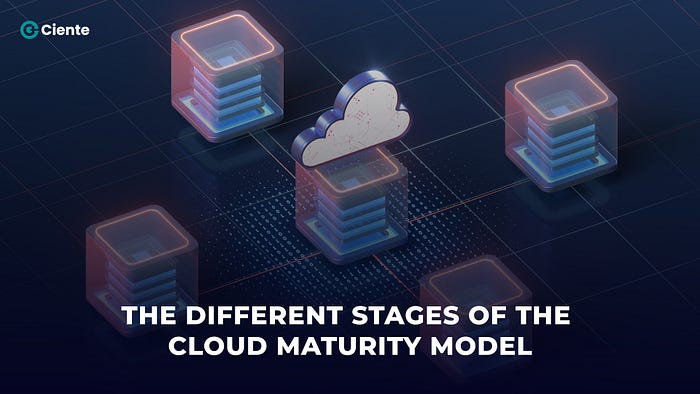The Different Stages of the Cloud Maturity Model

Strong 8k brings an ultra-HD IPTV experience to your living room and your pocket.
The adoption of cloud computing has become a key driver for business transformation. As organizations embark on their cloud journey, understanding the Cloud Maturity Model becomes imperative. This model serves as a guide, helping businesses assess and enhance their cloud capabilities progressively. Let’s delve into the various stages of the Cloud Maturity Model, shedding light on the key aspects and benefits of each.
Stage 1: Ad Hoc Cloud Adoption
At the initial stage, organizations often engage in ad hoc cloud adoption. It may involve sporadic use of cloud services for specific projects or departments. Decision-making is decentralized, and there is a lack of a cohesive strategy. While this stage provides a glimpse into the potential benefits of the cloud, it lacks the structure and consistency needed for sustained success.
Stage 2: Opportunistic Cloud Usage
Moving to the second stage, organizations start recognizing the strategic value of the cloud. There is a more intentional and widespread adoption of cloud services. However, these initiatives may still be driven by individual teams or projects rather than a unified organizational strategy. Companies at this stage benefit from increased agility and cost savings but may face challenges in governance and security.
Stage 3: Standardization and Centralization
As maturity progresses, organizations reach a stage of standardization and centralization. There is a concerted effort to establish common practices, policies, and governance frameworks across the entire enterprise. This stage involves the creation of a centralized cloud team and the adoption of standardized processes. Collaboration and communication among different business units become more streamlined, enhancing overall efficiency.
Stage 4: Integration with Enterprise Processes
In the fourth stage, cloud capabilities become seamlessly integrated with enterprise processes. Organizations prioritize interoperability and the integration of cloud solutions into their existing systems. This stage often involves the implementation of advanced automation, orchestration, and DevOps practices. The focus is on optimizing workflows, improving scalability, and ensuring a smooth user experience.
Stage 5: Continuous Optimization and Innovation
At the pinnacle of the Cloud Maturity Model, organizations reach a state of continuous optimization and innovation. Cloud capabilities are fully aligned with business objectives, and there is a proactive approach to leveraging emerging technologies. Continuous improvement is ingrained in the organization’s culture, with an emphasis on innovation, experimentation, and staying ahead of market trends.
Conclusion
The Cloud Maturity Model provides a roadmap for organizations to navigate the complexities of cloud adoption. As businesses progress through the stages, they gain a deeper understanding of the strategic role that the cloud plays in achieving their goals. By embracing cloud maturity, organizations position themselves for current success and the agility and innovation needed to thrive in an ever-changing technological landscape. The journey to cloud maturity is dynamic, and each stage brings its own set of challenges and opportunities. Embracing this evolution is key to unlocking the full potential of cloud computing in the modern business environment.
AUTHOURS BIO:
With our best tech publication, Ciente , business leaders stay abreast of tech news and market insights that help them level up now.
Technology spending is increasing, but so is buyer’s remorse. We are here to change that. Founded on truth, accuracy, and tech prowess, Ciente is your go-to periodical for effective decision-making.
Our comprehensive editorial coverage, market analysis, and tech insights empower you to make smarter decisions to fuel growth and innovation across your enterprise.
Let us help you navigate the rapidly evolving world of technology and turn it to your advantage.
Note: IndiBlogHub features both user-submitted and editorial content. We do not verify third-party contributions. Read our Disclaimer and Privacy Policyfor details.







